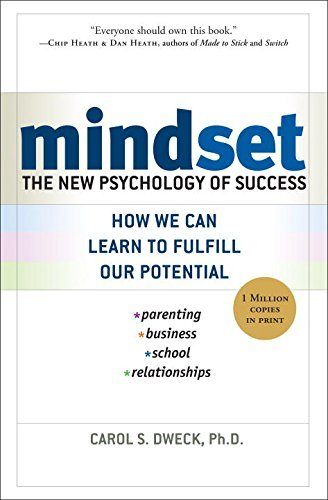In today’s uncertain business landscape, retaining talent is the key to doing more with less.
| From the desk of Miles Everson: Welcome to today’s edition of “Return Driven Strategy (RDS).” I’m thrilled to share another business insight with you in this article. For those of you who are not yet familiar with this, RDS is a pyramid-shaped framework with 11 tenets and 3 foundations. When applied properly, these principles help businesses attain high levels of performance. For today, let’s apply this framework in the context of workplace culture and employee engagement. Curious to know more? Keep reading below! |
In today’s uncertain business landscape, retaining talent is the key to doing more with less. These days, enterprises have to do more with fewer resources due to economic shifts, geopolitical tensions, and demographic changes. This comes even though the February 2025 jobs report signaled a robust jobs market with a 4.1% unemployment rate, an 80.5% participation rate for prime age workers, 4% wage growth, and an addition of 151,000 jobs. While the jobs market has shown resiliency, a skills gap continues to persist as the older segment of the U.S. workforce is steadily retiring, taking with them a wealth of skills and experience that are sorely needed.The result? The result? Even though there are many jobseekers, there aren’t enough viable candidates to fill open roles. Further complicating matters is the fact that a significant segment of workers are actively disengaged from their work, as only 31% of employees are actively engaged in their work according to Gallup ’s latest report on employee engagement. While this might paint a bleak picture for businesses pursuing growth targets, there is still hope in the form of the independent workforce. Here Come the Independents The 72-million-strong independent workforce is in a position to help enterprises weather the problems plaguing today’s business landscape. In fact, organizations have already undertaken steps to optimize their operations to seamlessly leverage independents across all levels of their business as over 11 million independents are serving enterprises in various capacities. However, the process of engaging independents doesn’t stop once they’ve been recruited… their engagement matters as well.
In today’s work environment, declining engagement rates in a jobs market that’s facing a real talent crunch are worrying trends that could jeopardize the short- and long-term competitiveness of enterprises. Worker engagement matters, regardless if it’s a full-time employee (FTE) or an independent that’s working with an enterprise. As Professor Joel Litman and Dr. Mark L. Frigo have emphasized in the book, “Driven,” monetary compensation is seldom enough to generate the type of engagement that would propel a business to high levels of performance. It goes without saying then that non-monetary means of fostering worker engagement is what enables a firm to perform at high levels. … BUT how exactly can organizations become a company and client of choice for workers? Here are a few pointers:
Aside from these pointers, another way of cultivating high engagement levels is by curating talent based on the skills needed to achieve organizational goals. According to Professor Litman and Dr. Frigo, it’s important for businesses to determine what their goals are and what types of offerings they need to deliver to customers. By doing this, business leaders can identify the skills needed in order to achieve short- and long-term goals. This way, these decision-makers can hire the right worker and will have an idea on the appropriate way of maintaining engagement levels. Think of it this way : How can you encourage a professional to keep working with you if you don’t know how they fit in your organization’s structure and needs? By knowing what types of talent your enterprise needs, you can come up with appropriate measures to foster and maintain high engagement levels. Becoming A Client of Choice in a Talent-Starved Market Fostering worker engagement is important now more than ever as the jobs market is facing a talent crunch that is set to plague businesses for years to come. Businesses that want to come out ahead of their peers have to prioritize this aspect of their operations since they have to grapple with geopolitical tensions, an uncertain economic climate, and demographic changes. Simply said, the enterprises of today have to do more with less. … and if they want to do so, business leaders have to put their companies in a position where they can acquire and retain the talent needed to meet their short- and long-term objectives. — If you’re looking to gain a better understanding of Return Driven Strategy and Career Driven Strategy, we highly recommend checking out “Driven” by Professor Litman and Dr. Frigo. Click here to get your copy and learn how this framework can help you in your business strategies and ultimately, in ethically maximizing wealth for your firm. Hope you found this week’s insights interesting and helpful. EXCITING NEWS AHEAD The world of work has shifted, and there’s no going back. The barriers to entry have never been lower for talented professionals to work independently, and today’s massive external workforce is hardly a pandemic-produced fad. Business owners can only survive in the new work landscape by partnering with this deep talent pool. With decades of experience in both small-business entrepreneurship and executive management at PwC, I truly believe that the future of work is independent. With that, I’m happy to share with you that my book, co-authored with Walter Scott Lamb, is now available on Amazon! Free Birds Revolution: The Future of Work & The Independent Mind This new bestseller is an essential read for both independent professionals and corporate executives. Here, we provide educational and practical guides to unpack the ever-growing workforce and offer you crucial ways to become a client of choice. Click on the link above to order your copy. Let this bestselling book help you future-proof your career and organization in the new world of work. Stay tuned for next Tuesday’s Return Driven Strategy! Uber Technologies Inc., founded in 2009 by Travis Kalanick and Garrett Camp, revolutionized urban transportation. Learn more about Uber’s 2018 rebrand through the lens of RDS in next week’s article! |

Miles Everson
CEO of MBO Partners and former Global Advisory and Consulting CEO at PwC, Everson has worked with many of the world's largest and most prominent organizations, specializing in executive management. He helps companies balance growth, reduce risk, maximize return, and excel in strategic business priorities.
He is a sought-after public speaker and contributor and has been a case study for success from Harvard Business School.
Everson is a Certified Public Accountant, a member of the American Institute of Certified Public Accountants and Minnesota Society of Certified Public Accountants. He graduated from St. Cloud State University with a B.S. in Accounting.
SIGN UP FOR THE NEWSLETTER
The Business Builder Daily
Newsletter Signup
We will get back to you as soon as possible.
Please try again later.



